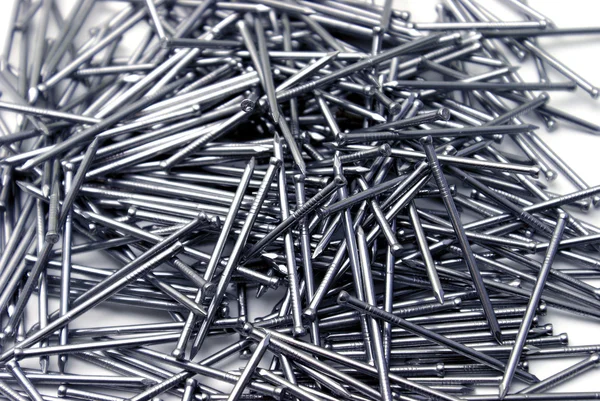Finding the Best Casing Nail: A Comprehensive Review
When it comes to carpentry and woodworking projects, using the right tools is essential to achieve a professional finish. Casing nails are a crucial component for securing moldings, trim, and other fine finish work, providing a clean and seamless appearance. To help you find the best casing nails available on Amazon, we’ve compiled a list of the top-rated products that offer superior fastening solutions for your projects. From durability to ease of use, these nails have been handpicked to meet your needs and ensure your projects are nothing short of exceptional.
To see our related product guide article, click here.
Top Picks for Best Casing Nail
Huttig-Grip Heavy Duty Casing Nail 8d 2-1/2 inches Finish Trim Series
The Huttig-Grip Heavy Duty Casing Nail is a versatile and reliable choice for window and door frame assembly. Measuring 2-1/2 inches, these nails are designed to offer exceptional grip and holding power. The Outdoor Galvanized coating enhances the nails’ durability, making them suitable for outdoor use. Each pack contains approximately 133 nails, providing ample supply for your projects.
Pros:
- Heavy-duty construction ensures reliable performance.
- Outdoor Galvanized coating protects against rust and corrosion.
- Ample quantity in a 1 lb pack, ideal for larger projects.
- Suitable for both indoor and outdoor applications.
- Compatible with various wood types.
Cons:
- Might be pricier compared to standard casing nails.
HILLMAN FASTENERS 461302 2.5″ 8D Casing Nail
HILLMAN FASTENERS 461302 2.5″ 8D Casing Nail is a tried-and-true option for finish trim work. These nails, measuring 2.5 inches, are designed to penetrate various wood types with ease. Their durable construction ensures long-lasting performance and excellent holding power for window and door frame assembly.
Pros:
- Ideal length for securing window and door casings effectively.
- Durable and sturdy construction.
- Suitable for a wide range of woodworking applications.
- Sharp point for easy penetration into wood.
- Great value for money.
Cons:
- May not have a rust-resistant coating, requiring additional protection for outdoor use.
NATIONAL NAIL 63198 LB 16D Galvanized Casing Nail
The NATIONAL NAIL 63198 LB 16D Casing Nail is a heavy-duty option for more substantial projects. With a 16D size, these nails are 3-1/2 inches long, providing superior holding power for larger window and door frames. The galvanized coating offers excellent corrosion resistance, making them suitable for both indoor and outdoor applications.
Pros:
- Heavy-duty construction for robust performance.
- Galvanized coating prevents rust and corrosion.
- Extra-long length for larger frame assemblies.
- Suitable for outdoor projects in various weather conditions.
- Well-suited for attaching heavy casings.
Cons:
- May be too long for smaller projects.
Maze Nails Hardwood Trim/Casing Nail
The Maze Nails Hardwood Trim/Casing Nails are specially designed for hardwood applications. These slim diameter casing nails, measuring 2 inches, are crafted from high-quality carbon steel wire, ensuring durability and strength. The slim design reduces the risk of wood splitting during installation, making them an excellent choice for delicate woodworking tasks.
Pros:
- Ideal for delicate hardwood applications.
- Slim diameter reduces the chance of wood splitting.
- Carbon steel wire construction ensures durability.
- Suitable for various trim work and woodworking projects.
- Well-suited for indoor use.
Cons:
- Not suitable for heavy-duty framing projects.
Conclusion
When choosing the best casing nails for your projects, consider factors like nail length, gauge, and the type of finish to match your specific needs. Each of these top-rated products offers distinct advantages, ensuring your trim work is secure, aesthetically pleasing, and stands the test of time. Whether you’re a professional carpenter or a DIY enthusiast, investing in high-quality casing nails will undoubtedly enhance the outcome of your woodworking projects.
What Should You Look for in a Casing Nail?
When choosing casing nails for your construction or woodworking projects, several factors should be considered to ensure you get the right nails for the job. Here are some essential things to look for in a casing nail:
- Size: Casing nails come in various sizes, typically measured by the “penny” system (e.g., 6d, 8d, 16d). The size you choose should depend on the thickness of the wood you’re nailing into and the weight of the casings. Larger and heavier casings will require longer and thicker nails for better support.
- Material: Casing nails are commonly made of materials like steel or stainless steel. Steel nails are cost-effective and suitable for indoor projects, but they may not be ideal for outdoor use as they can rust. Stainless steel nails, on the other hand, offer excellent corrosion resistance, making them suitable for both indoor and outdoor applications.
- Finish: The finish of the casing nail can affect both aesthetics and durability. Common finishes include bright basic, galvanized, and coated options. Galvanized and coated nails provide better rust resistance, making them ideal for outdoor projects where exposure to the elements is a concern.
- Point Type: Casing nails typically have a chisel or diamond point. Chisel points are ideal for general-purpose nailing, while diamond points offer better penetration and reduce wood splitting, making them suitable for delicate trim work and hardwoods.
- Gauge: The gauge of the nail refers to its thickness. Lower gauge numbers indicate thicker nails. For most casing applications, 15-gauge and 16-gauge nails are commonly used. Thicker nails provide better holding power, but they may also leave larger holes in the wood.
- Head Type: Casing nails come with various head types, such as flat heads, conical heads, and finish heads. Flat heads are more discreet, while conical and finish heads provide a more decorative look for visible trim applications.
- Holding Power: Consider the holding power of the nail. The design and material of the nail can affect how well it stays in place and supports the casings over time. Look for nails with strong grip and holding capabilities, especially for heavier casings.
- Compatibility: Ensure that the casing nails are compatible with your nail gun or hammer if you plan to use one. Some nails may be specifically designed for certain types of nail guns.
- Quantity and Packaging: Consider the quantity of nails in each pack and whether it aligns with the size of your project. Larger packs may offer better value for money if you have several projects planned.
- Reviews and Ratings: Finally, always check customer reviews and ratings to gain insights into the performance and quality of the casing nails from real users.
By considering these factors, you can make an informed decision and choose the right casing nails that best suit your specific project requirements.
Frequently Asked Questions
What is a casing nail?
A casing nail is a type of nail specifically designed for use in finish carpentry, particularly for attaching trim and casings around windows, doors, and other architectural elements. They are often used to give a clean and polished appearance to the final construction or woodworking projects.
Casing nails are distinguishable by their characteristics, which make them well-suited for finish work:
- Size: Casing nails come in various sizes, typically measured by the “penny” system, such as 6d, 8d, 10d, 16d, etc. The “d” stands for “penny,” an old English term used to represent the price per hundred nails. The larger the penny size, the longer and thicker the nail.
- Design: Casing nails usually have a smooth shank, which provides a sleek and neat appearance once installed. They lack the spiral or ribbed shank that you might find in framing nails, as those are intended for structural purposes.
- Point Type: Casing nails commonly have either a chisel point or a diamond point. The chisel point is more common and works well for general-purpose nailing, while the diamond point is designed to reduce wood splitting during installation, making it suitable for delicate trim work and hardwoods.
- Head Type: Casing nails typically have a flat or slightly countersunk head, designed to sit flush with the surface of the casing or trim once driven in. This feature helps create a clean and polished finish.
- Material and Finish: Casing nails are typically made of steel or stainless steel. The finish on the nails can vary, with options like bright basic (uncoated), galvanized (coated with a layer of zinc for rust resistance), or other specialized coatings.
- Versatility: Casing nails are suitable for a wide range of applications, including attaching window and door casings, baseboards, crown moldings, chair rails, and other decorative trim elements.
Due to their specific design and features, casing nails provide excellent holding power while leaving minimal visible marks on the surface, making them ideal for finish carpentry where aesthetics are important. They are available in various lengths and diameters to accommodate different woodworking needs and materials.
What is a casing nail used for?
A casing nail is used for finish carpentry and woodworking projects to attach trim and casings around windows, doors, and other architectural elements. These nails are specifically designed for applications that require a clean and polished appearance, as they leave minimal visible marks on the surface once installed. Casing nails are commonly used for the following purposes:
- Installing Window and Door Casings: Casing nails are perfect for securing the decorative trim around windows and doors, providing a neat and finished look to the frames. They hold the casings securely in place and ensure that the trim stays in position over time.
- Attaching Baseboards and Crown Moldings: Casing nails are commonly used to attach baseboards, which run along the bottom of walls, and crown moldings, which adorn the junction between walls and ceilings. These decorative elements add elegance and character to a room, and casing nails are essential for their secure installation.
- Adding Chair Rails: Chair rails are horizontal moldings installed on walls, typically at a height of 32 to 36 inches from the floor. Casing nails are used to fix chair rails, offering protection to walls from furniture and adding a touch of sophistication to the room’s interior design.
- Applying Decorative Trim: Casing nails are suitable for various decorative trim elements, including wainscoting, picture rails, and other ornamental features that enhance the visual appeal of a space.
- Trim Work in Cabinetry and Furniture: Casing nails can also be used in cabinetry and furniture-making for attaching decorative trims and moldings to add finesse and detail to the finished product.
Casing nails are designed to have a smooth shank, a flat or slightly countersunk head, and are available in various sizes and materials. Their characteristics ensure that they hold the trim securely in place while minimizing the risk of surface damage, visible holes, or splitting of the wood during installation. The versatility and aesthetic appeal of casing nails make them an essential component in many finish carpentry and woodworking projects.
What nails will not rust outside?
Nails that are designed to resist rusting when used outdoors typically have a protective coating or are made from materials that are naturally resistant to corrosion. Here are some types of nails that are less likely to rust outside:
- Stainless Steel Nails: Stainless steel nails are one of the best options for outdoor use. They are made from a special alloy that contains chromium, which provides excellent corrosion resistance. Stainless steel nails can withstand exposure to moisture, rain, and other weather conditions without rusting.
- Hot-Dipped Galvanized Nails: Hot-dipped galvanized nails are steel nails that have been coated with a layer of zinc through a hot-dipping process. This zinc coating provides a barrier against moisture and prevents the underlying steel from rusting. Hot-dipped galvanized nails are commonly used for outdoor applications, including construction, fencing, and decking.
- Electro-Galvanized Nails: Electro-galvanized nails are also coated with a layer of zinc, but the process involves an electroplating technique. While not as durable as hot-dipped galvanized nails, they still offer some rust resistance and are suitable for lighter outdoor projects.
- Aluminum Nails: Aluminum nails are naturally resistant to rust since aluminum does not corrode in the same way as iron-based metals. These nails are lightweight and ideal for outdoor projects where weight is a concern. However, aluminum nails may not have the same strength as steel nails, so they are better suited for less demanding applications.
- Copper Nails: Copper nails offer excellent corrosion resistance and are often used for marine and coastal applications where the saltwater environment can cause rusting in other types of nails. Copper nails develop a unique patina over time, which adds to their aesthetic appeal in certain applications.
- Polymer-Coated Nails: Some nails are coated with polymer materials, such as epoxy or vinyl, which provide added protection against rust and corrosion. These nails are suitable for outdoor use and can be found in various colors to match the project’s aesthetic.
When selecting nails for outdoor projects, consider the specific environmental conditions and the level of exposure to moisture and weather elements. Stainless steel and hot-dipped galvanized nails are the most commonly recommended for long-lasting, rust-resistant performance in outdoor applications. Always ensure that the nails you choose are compatible with the materials you’re working with and the intended application to achieve the best results.
editor's pick
news via inbox
Stay one step ahead with exclusive tips, guides, and offers delivered directly to your inbox.
Sign up for our newsletter and elevate your home improvement game today!






